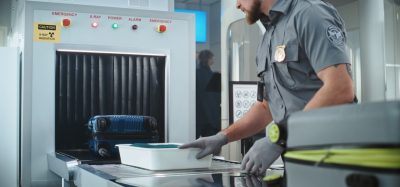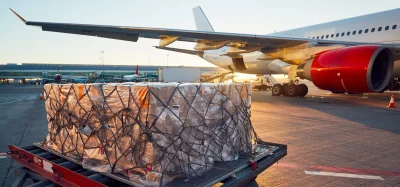European Space Agency moves closer to more precise flight tracking
Posted: 18 July 2018 | | No comments yet
Air traffic modernisation is well underway with the development of technology to pinpoint aircraft in four dimensions – latitude, longitude, altitude and time.


FLYING START: The objective is to have the Iris system operational by the end of 2020
European Space Agency (ESA) and Inmarsat have developed a way to free up more aviation satellite technology and make ATM more efficient.
The Iris project has seen major success in its three-hour test flight from Schiphol airport. As the new technology aims to reduce the back log off air traffic communications. This test flight is a significant step toward more precise flight surveillance and more efficient air traffic management.
This project will enable secure, high bandwidth datalink communications over Europe; the enhanced IP-based capabilities will relieve pressure on crowded VHF (very high frequency) channels, which are near capacity, by moving pilot-controller communications from voice communications to high-speed data link.
Join us live: Shaping the Next Generation of Hold Baggage and Air Cargo Screening
Join us live for an insightful webinar on 11th December at 14:00 GMT, in collaboration with Smiths Detection, as we explore the strategic balance of operational efficiency, regulatory compliance, and sustainability in high-volume security environments.
This session offers a focused look into future-proofing your security strategy.
Key learning points
- Cost Reduction: Strategies to minimize bag travel time while simultaneously reducing operational costs.
- Regulatory Roadmap: Insights into the next wave of regulatory changes and their impact on future investment decisions.
- Sustainable Systems: Practical approaches to building sustainability into security systems and lowering the total cost of ownership (TCO).
- Scalable Solutions: Real-world examples of scalable systems supporting current airport growth and preparing for tomorrow.
Register now for expert insights, case studies, and actionable strategies on operational efficiency!
The Iris programme is a step closer to enabling SESAR’s concept of pinpointing aircraft in four dimensions (4D) – latitude, longitude, altitude and time – which will result in more precise flight tracking and more efficient air traffic management
John Broughton, Inmarsat’s Vice President of Aviation Safety and Operational Services, said: “The results of our highly-successful test flight with ESA bring the Iris programme a step closer to certification by the European Aviation Safety Authority (EASA) and making this ground-breaking technology commercially available for airlines. With terrestrial datalink technologies reaching their capacity limits in the next ten years, the Iris programme has become an even more essential part of the Single European Sky initiative.
“Our previous test flights were conducted during the Iris development phase, using a combination of simulated systems and existing terminals. The fact that we have now have flown with the programme’s actual avionics system shows the excellent progress being made. All performance objectives were met and now the Iris consortium moves on to the next major milestone the objective of making Iris an operational system in 2020.”
The Iris programme will enhance airspace utilisation and aviation safety, while reducing flight times, delays and CO2 emissions, all in support of the Single European Sky ATM Research (SESAR) masterplan. It will also heighten aircraft communications security through the use of security gateways, which provide a VPN (virtual private network) barrier that securely connects flight management systems on board the aircraft to corresponding systems used by air traffic controllers on the ground.
Stay Connected with International Airport Review — Subscribe for Free!
Get exclusive access to the latest airport and aviation industry insights from International Airport Review — tailored to your interests.
✅ Expert-Led Webinars – Gain insights from global aviation leaders
✅ Weekly News & Reports – Airport innovation, thought leadership, and industry trends
✅ Exclusive Industry Insights – Discover cutting-edge technologies shaping the future of air travel
✅ International Airport Summit – Join our flagship event to network with industry leaders and explore the latest advancements
Choose the updates that matter most to you.
Sign up now to stay informed, inspired, and connected — all for free!
Thank you for being part of our aviation community. Let’s keep shaping the future of airports together!
Related topics
Air traffic control/management (ATC/ATM), Economy, New technologies
Related airlines
Related organisations
Aviation Safety and Operational Services, European Space Agency, SESAR
Related regions
Africa, Asia Pacific and Oceania, Central and South America, Central and South Asia, Europe, Middle East, North America, United Kingdom and Ireland


















